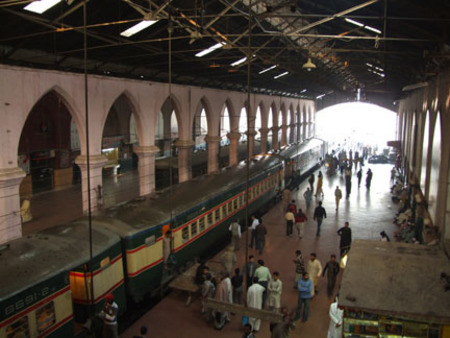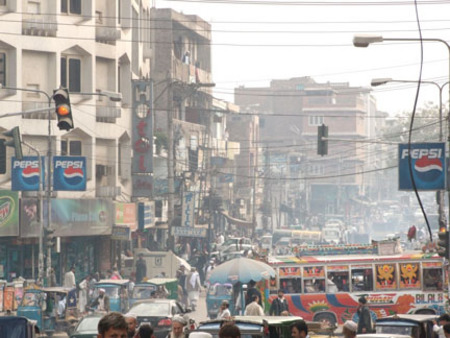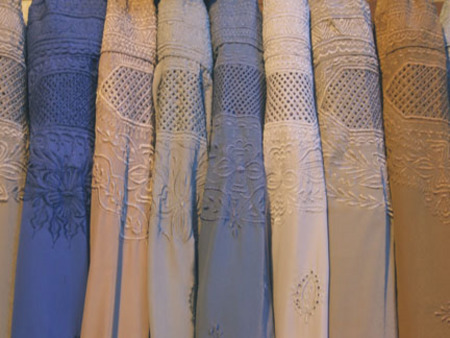Tabitha Moses
Residency at Beaconhouse National University
Adventures up North
Posted by Tabitha Moses on 12th December 2006
It's been a busy few weeks. I spent 10 days in Peshawar and Swat Valley last month. I'd been getting mixed advice about travelling alone in Pakistan. Most people I asked were really cautious and advised against it. The guy at the travellers' hostel said I'd be fine, so I decided to take his word and booked my train journey north.
(Independent travel has been a major issue for me - around Lahore and beyond. Within Lahore rickshaw travel is fine (if fumey) but the rupees soon mount up, so I was overjoyed to discover that the Daewoo bus number 5 runs between the guesthouse and city centre).
So, after promising everyone I'd be careful, I set out on my adventure.
After a 10 hour train journey I arrived in Peshawar, which I liked immediately. The hotel was in a great location at a busy crossroads, a short walk from the bazaars of the old city.
Peshawar is near the border with Afghanistan and there are many refugees in the city (with a camp on the outskirts). I wandered around, drinking green tea and chatting with the Afghan shop workers, eating delicious Afghan food, experiencing the famous Pashtun hospitality, drooling over textiles and embroidery and wearing a large black scarf to cover my hair and body (and camera bag). I was delighted and thoroughly charmed by the people I encountered.
There are less women evident on the streets here, and those that are wear their hair covered. Most women wear burqas of the (blue pleated) Afghan or (variously coloured) Pakistani variety. After trying some on at the burqa shop I bought three.
I've been interested in this iconic and (to me) mysterious form of dress since seeing a beautifully embroidered example in the V&A 15 years ago. The aesthetic qualities, the symbolic and religious aspects, the feel of wearing it and the differing perceptions of a burqa-clad woman - all combine to make this a potent item of clothing, rich in meaning. Veiling is a public extension of the rules which govern the interaction between women and men within the home (where women are only seen by male members of their own family) and it is fascinating to discover more about these traditions.
After 3 days in Peshawar I took a packed minibus to Madyan in the valley of Swat. Just turning up at the (seemingly) chaotic bus stand and managing to get on the correct bus feels like an achievement. It is a bit daunting with no Urdu, but people are so kind and will go out of their way to help.
(Travelling on public transport has afforded me opportunities to interact with women - always ending up in conversations about my country, marriage and children (enthusiastic but limited by our language differences). I have felt a real emotional warmth and, generally, people seem to be considerate of the greater good in a way we are not in individualistic Britain, eg. by moving up to fit three people on a seat designed for two, insisting others sit down. People are also less precious about personal space and willing to share both space and food.)
More on Swat after I've had a cup of tea...
(Click here to see more images of Peshawar)

Click on image to open QuickTime movie
"ARTIST'S TALK"
Tabitha Moses talks to conference during cHAT week at Sanskriti, Delhi, India. March 2007








